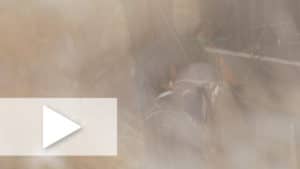
Sunday
The church is at its greatest vitality as the “Jesus Movement,” and the institution is merely the vehicle for that movement. —Richard Rohr
Monday
The best criticism of the bad is the practice of the better. That might be a perfect motto for all reconstructive work. It does not destroy machines or monuments but reinvigorates them with new energy and form. —Richard Rohr
Tuesday
Has the Church become mechanistic like so many other world systems? Is it “stuck in a rut,” and if so, can it find its way out of the rut into a new future? —Ilia Delio
Wednesday
Founders are typically generous, visionary, bold, and creative, but the religions that ostensibly carry on their work often become the opposite: constricted, change-averse, nostalgic, fearful, obsessed with boundary maintenance, turf battles, and money. —Brian McLaren
Thursday
Spiritual outbursts almost always precede real reform. Might spiritual discontent be today’s prophetic edge, needling institutions to listen, to change, to be more responsive and relevant? —Diana Butler Bass
Friday
The gospel always wants to dislodge itself from the places where it gets stuck and embedded in the narrow, cultural structure. So, we all take steps to free it, find our way, again and again, to an expansive tolerance and a high reverence for paradox. We need to allow the Church to become a movement again. —Gregory Boyle
Creating a Congregational Manifesto
Minister, entrepreneur, and author Cameron Trimble encourages churches seeking new life to create a “congregational manifesto.” Such a practice helps congregations—and other community groups or families—come to terms with what their core beliefs, values, and hopes really are—and to participate with God in living them out. Trimble suggests discerning the following questions in community:
- Start by writing down your congregation’s core values. What are the values that define how you want to live together and make decisions? Kindness? Integrity? Ingenuity? . . . Honesty? . . .
- Next, write a list of strengths you observe in your church. Think about the moments in your history that make you the most proud. Have you taken courageous stands for justice? . . .
- Now write down your passions. What ministries rally the most people? Which have endured the longest?
- Next, write down what concerns you, as a congregation, have for your community. What breaks your heart? What makes you want to rise up in action and change it? . . .
- Now write down what shared experiences have shaped you. Think about times you came together and did something great. Think of times when a death in the congregation shook you to the core. Think of times of conflict. What failures have made you stronger? Think of the generations who have attended and where they are now because of the church. . . .
Start to group these into themes. . . . Create short statements that you then develop into a single paragraph. Or, you might write out a poem. Or, you can create a statement.
Experience a version of this practice through video and sound.
Reference:
Cameron Trimble, Piloting Church: Helping Your Congregation Take Flight (St. Louis, MO: Chalice Press, 2019), 44.
Explore Further. . .
- Listen to Jacqui Lewis interview Civil Rights movement icon Ruby Sales on Love. Period.
- Learn more about this year’s theme Nothing Stands Alone.
- Meet the team behind the Daily Meditations.
Image credit: Jenna Keiper, Untitled Church I (detail), 2020, photograph, New Mexico, used with permission. Toni Frissell, Minnie Burden, barefoot, riding a horse (detail), 1964, photograph, Library of Congress, public domain. Jenna Keiper, Untitled Window (detail), 2020, photograph, New Mexico, used with permission. Jenna Keiper and Leslye Colvin, 2022, triptych art, United States.
This week’s images appear in a form inspired by early Christian/Catholic triptych art: a threefold form that tells a unified story.
Image inspiration: The left and right photos are of stone monuments: solid and unmoving. Between them the fresh energy and movement of a horse and rider breathe life into this trio of images. How can we stay connected to the energetic, movement origins of our religions?
Prayer for our community:
God, Lord of all creation, lover of life and of everything, please help us to love in our very small way what You love infinitely and everywhere. We thank You that we can offer just this one prayer and that will be more than enough, because in reality every thing and every one is connected, and nothing stands alone. To pray for one part is really to pray for the whole, and so we do. Help us each day to stand for love, for healing, for the good, for the diverse unity of the Body of Christ and all creation, because we know this is what You desire: as Jesus prayed, that all may be one. We offer our prayer together with all the holy names of God, we offer our prayer together with Christ, our Lord, Amen.


